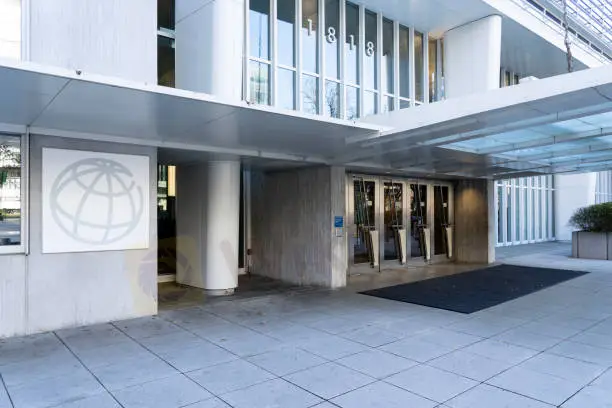简体中文
繁體中文
English
Pусский
日本語
ภาษาไทย
Tiếng Việt
Bahasa Indonesia
Español
हिन्दी
Filippiiniläinen
Français
Deutsch
Português
Türkçe
한국어
العربية
WB approves $435m for three projects in Pakistan
Abstract:The World Bank’s (WB) Board of Executive Directors has approved $435 million in financing for three projects in Pakistan.
The projects – the Pakistan Housing Finance project, the Punjab Urban Land Systems Enhancement project and the Punjab Affordable Housing Programme – will expand access to housing finance, particularly for low-income households, improve land tenure rights and facilitate affordable housing developments in urban Punjab, said the World Bank in a statement issued on Friday.

“Affordable and accessible housing is in high-demand in Pakistan, which is home to over 200 million people and is the most urbanised country in South Asia,” said Najy Benhassine, World Bank Country Director for Pakistan.
These projects will contribute to addressing housing needs, particularly for low-income households, by leveraging the private sector and by facilitating access to mortgage options for those who currently cannot access financing to buy a home.
They will also strengthen property rights and increase the supply of climate-resilient, affordable housing developments.
Additional financing of $85 million has been approved for the Pakistan Housing Finance Project to scale up the credit risk-sharing facility launched in 2018. Financing has been approved to provide partial credit guarantees to banks to incentivise them to lend to borrowers traditionally excluded from commercial financing.
The funding will benefit up to 70,000 first-time home buyers in the country, who qualify for the governments interest rate subsidy programme Mera Pakistan, Mera Ghar. Meanwhile, $150 million has been approved for the Punjab Urban Land Systems Enhancement Project.
The WB in its statement said that the project will support the provincial government in upgrading its land registry by creating a digital, province-wide inventory of lands and deeds. “This will help secure land tenure and streamline procedures for land-related permits – which are essential for private sector investment, housing finance and tax revenue collection,” said WB.
Furthermore, $200 million has been allotted for the Punjab Affordable Housing Program to increase the availability of affordable housing, particularly for low-income households in the province. “The programme will enhance government systems to create an enabling environment that attracts private financing for mixed-income housing developments. It will also help the government better target subsidies of the Naya Pakistan Housing Program for low-income households,” the WB stated.
Disclaimer:
The views in this article only represent the author's personal views, and do not constitute investment advice on this platform. This platform does not guarantee the accuracy, completeness and timeliness of the information in the article, and will not be liable for any loss caused by the use of or reliance on the information in the article.
Read more

Decade-Long FX Scheme Unravels: Victims Lose Over RM48 Mil
A sophisticated forex investment scheme that took a decade to establish has been exposed as a global financial fraud. In Malaysia alone, at least 77 individuals have reportedly lost more than RM48 million.

Understanding Currency Intervention in Forex Markets
Currency intervention involves actions by a nation's central bank or monetary authority to influence the value of its currency in the foreign exchange (forex) market. These interventions aim to achieve specific economic objectives, such as controlling inflation, stabilizing the currency, or influencing trade balances.

ED Exposed US Warned Crypto Scam ”Bit Connect”
The Indian Enforcement Directorate (ED) recently exposed a crypto scam from Bitconnect. The investigation took place between February 11th and 15th, 2025. The authority recovered bitcoin worth approximately Rs 1,646 crore & Rs 13.50 lakh in cash, a Lexus car, and digital devices. This investigation was conducted under the provisions of the Prevention of Money Laundering Act (PMLA) of 2002.

Why Do You Keep Blowing Accounts or Making Losses?
For many traders, consistent losses can feel like an inevitable part of the journey. Some blame the market, others point fingers at brokers, and many convince themselves that luck simply isn’t on their side. But the reality is that repeated trading losses are rarely down to bad luck alone. Instead, a mix of psychological, emotional, and technical factors often leads traders down the path of blown accounts and frustrating setbacks. Understanding these deeper issues is key to breaking the cycle and becoming a more resilient and strategic trader.
WikiFX Broker
Latest News
Brazilian Man Charged in $290 Million Crypto Ponzi Scheme Affecting 126,000 Investors
Become a Full-Time FX Trader in 6 Simple Steps
ATFX Enhances Trading Platform with BlackArrow Integration
Decade-Long FX Scheme Unravels: Victims Lose Over RM48 Mil
The Top 5 Hidden Dangers of AI in Forex and Crypto Trading
5 Steps to Empower Investors' Trading
How to Find the Perfect Broker for Your Trading Journey?
The Most Effective Technical Indicators for Forex Trading
What Can Expert Advisors Offer and Risk in Forex Trading?
Indian National Scams Rs. 600 Crore with Fake Crypto Website
Currency Calculator







